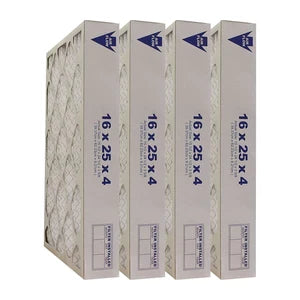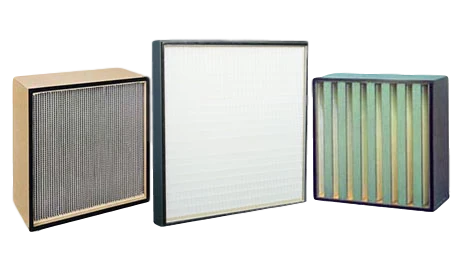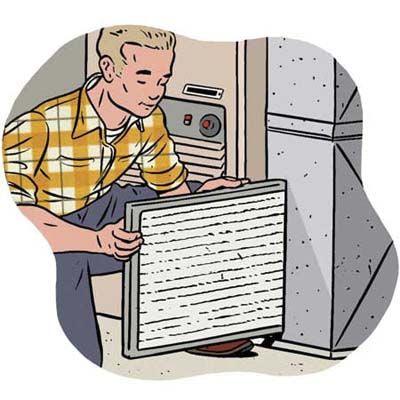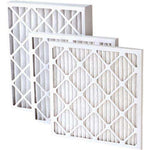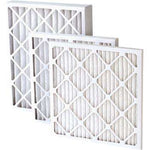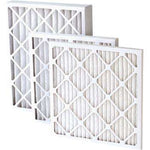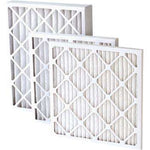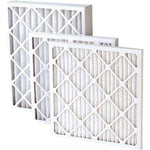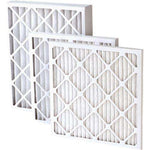You have no items in your shopping cart.
In warm climates, air conditioning is thought of as an absolute necessity. So it's probably important to have some working knowledge of how air conditioning systems operate, and what you can do to insure proper maintenance and functioning. Here are six key points to assist in making you a better informed homeowner.
1. What do you mean by Air Conditioning?
Air Conditioning is all about controlling indoor humidity, while maintaining thermal comfort. In other words, making indoor living comfortable when its warm outside.
2. How does an Air Conditioner work?

An air conditioner aids to shift heat from indoors to outside. The blower motor in your furnace pushes warm air over cold pipes with the help of an evaporator coil. The evaporator coil is packed with a refrigerant, which cools the pipes. This warm air passing over the cool pipes creates condensation which is removed, leaving cooler air being pushed through the duct system.
- Should I buy filters with high MERV ratings?
- MERV Filters Ratings and Comparison Chart
3. What are the functions of AC Filters?
The air conditioner filter removes airborne particles and debris as the blower motor in the furnace distributes air through the duct system. It is important to regularly check and examine the filter. A filter that has a heavy build up of debris can become clogged, which increases resistance and reduces airflow. Most manufacturers recommend replacing the filter every three months.

- How to Choose the Right Furnace Filter
- OEM vs Aftermarket Filters
4. How to Increase energy efficiency?
Often, one of the simplest things you can do is seal leaky ducts. Replacing dirty filters, cleaning the evaporator coil and maintaining recommended blower speed will also help. Make sure the outside condensing unit is not obstructed and has good airflow in and around the unit. If replacing the system, consider looking at high efficiency unit. The higher the SEER rating (Seasonal Energy Efficiency Rating), the greater your cost savings, in terms of hydro consumption.
- Why Should I Worry about Indoor Pollution?
- Importance of Changing your Furnace Filter Regularly
- What MERV rating should my filter have?
5. Reduce Hydro Consumption
Reducing internal loads can be achieved by shutting off unwanted electrical devices, lights and other appliances. If possible, utilize exhaust fans to eliminate heat from kitchens and other rooms. In some cases, large ceiling fans can be used to improve airflow and cooling.

- What Happens When You Forget to Change Your Filter?
- What You Need To Know About Replacing Furnace Filters?
- Air Filter Quality Ratings Chart
6. Proper Ventilation
A correctly functioning air conditioner should dehumidify, cool, clean and ventilate for comfort and good health. Proper ventilation is essential. Without sufficient ventilation, the indoor air environment can pose serious health problems. Experts indicate that the air inside a home should be replaced every 3-4 hours. Older homes have a tendency to have leakier ducts or walls, and frequently get plenty of ventilation through such leakage. On the contrary, newer homes are significantly more air tight and often require mechanical ventilation.
In warm climates, air conditioning is thought of as an absolute necessity. So it's probably important to have some working knowledge of how air conditioning systems operate, and what you can do to insure proper maintenance and functioning. Here are six key points to assist in making you a better informed homeowner.
1. What do you mean by Air Conditioning?
Air Conditioning is all about controlling indoor humidity, while maintaining thermal comfort. In other words, making indoor living comfortable when its warm outside.
2. How does an Air Conditioner work?

An air conditioner aids to shift heat from indoors to outside. The blower motor in your furnace pushes warm air over cold pipes with the help of an evaporator coil. The evaporator coil is packed with a refrigerant, which cools the pipes. This warm air passing over the cool pipes creates condensation which is removed, leaving cooler air being pushed through the duct system.
- Should I buy filters with high MERV ratings?
- MERV Filters Ratings and Comparison Chart
3. What are the functions of AC Filters?
The air conditioner filter removes airborne particles and debris as the blower motor in the furnace distributes air through the duct system. It is important to regularly check and examine the filter. A filter that has a heavy build up of debris can become clogged, which increases resistance and reduces airflow. Most manufacturers recommend replacing the filter every three months.

- How to Choose the Right Furnace Filter
- OEM vs Aftermarket Filters
4. How to Increase energy efficiency?
Often, one of the simplest things you can do is seal leaky ducts. Replacing dirty filters, cleaning the evaporator coil and maintaining recommended blower speed will also help. Make sure the outside condensing unit is not obstructed and has good airflow in and around the unit. If replacing the system, consider looking at high efficiency unit. The higher the SEER rating (Seasonal Energy Efficiency Rating), the greater your cost savings, in terms of hydro consumption.
- Why Should I Worry about Indoor Pollution?
- Importance of Changing your Furnace Filter Regularly
- What MERV rating should my filter have?
5. Reduce Hydro Consumption
Reducing internal loads can be achieved by shutting off unwanted electrical devices, lights and other appliances. If possible, utilize exhaust fans to eliminate heat from kitchens and other rooms. In some cases, large ceiling fans can be used to improve airflow and cooling.

- What Happens When You Forget to Change Your Filter?
- What You Need To Know About Replacing Furnace Filters?
- Air Filter Quality Ratings Chart
6. Proper Ventilation
A correctly functioning air conditioner should dehumidify, cool, clean and ventilate for comfort and good health. Proper ventilation is essential. Without sufficient ventilation, the indoor air environment can pose serious health problems. Experts indicate that the air inside a home should be replaced every 3-4 hours. Older homes have a tendency to have leakier ducts or walls, and frequently get plenty of ventilation through such leakage. On the contrary, newer homes are significantly more air tight and often require mechanical ventilation.
